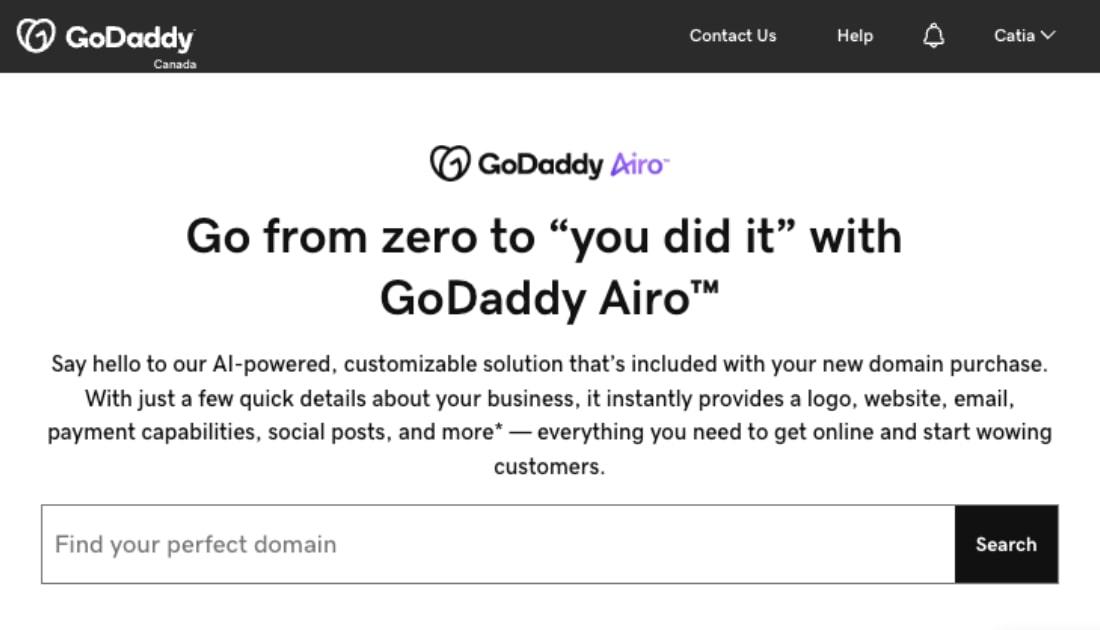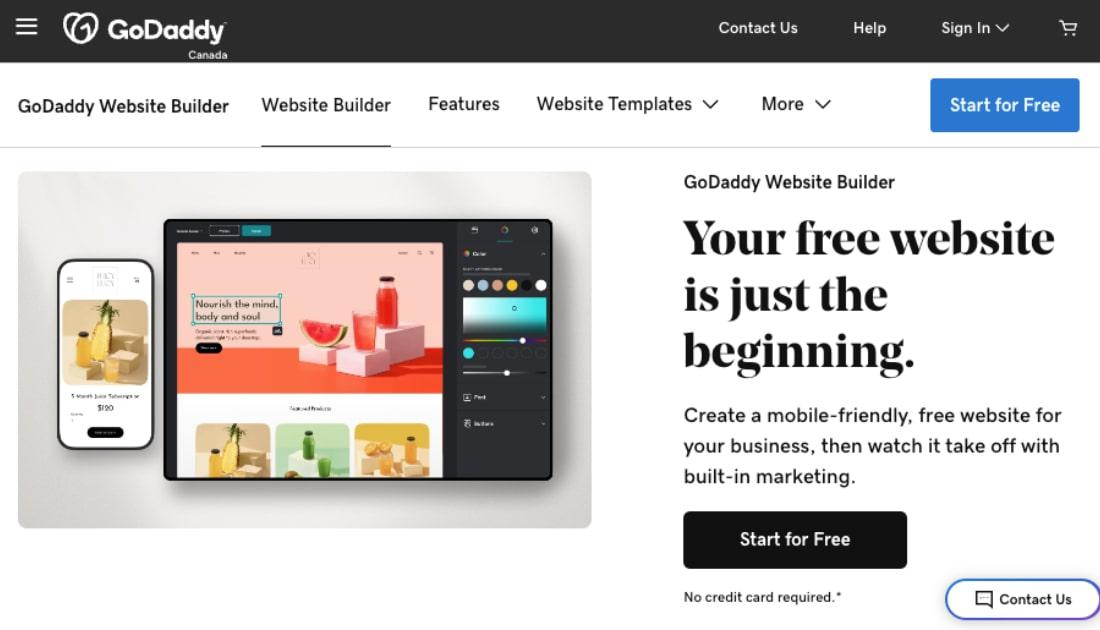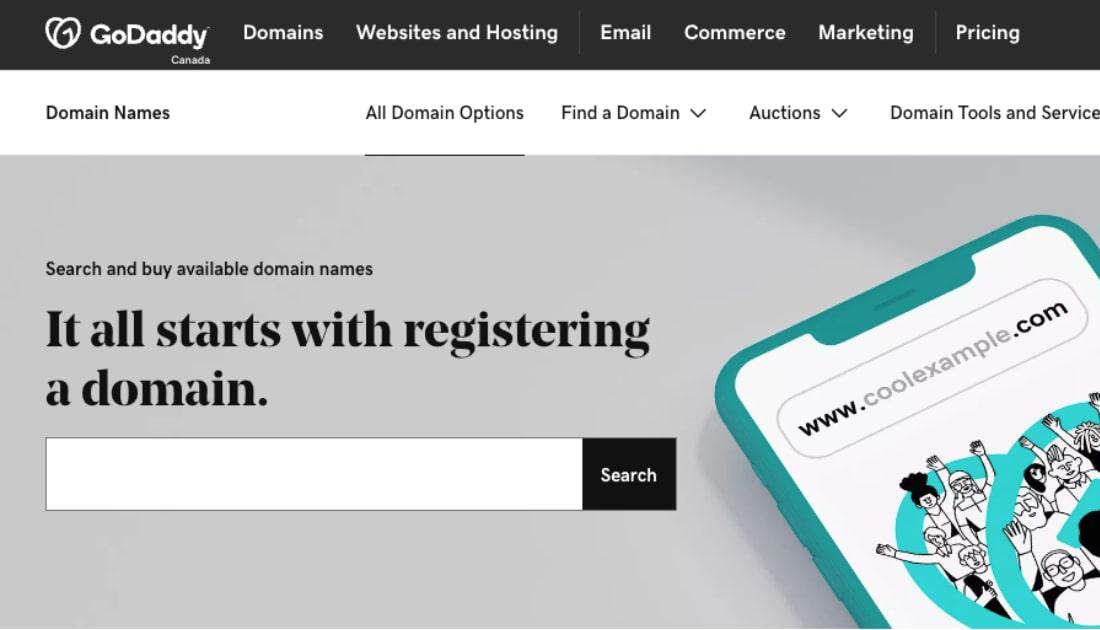There has never been a better time to start a business. In our hyper-connected digital age, you can set up a website, an online store — even an entire brand — from anywhere in the world.
If you’re wondering how to start a business, we’re here to help. In this guide, we’ll look at the essential steps you need to take to make your business a real success.
Online business-building tools abound — and many are free.
With the right approach, you can grow a loyal customer base quicker than you might think.
Ready? Great! Let’s get started.
Note: The information provided in this article is provided for general informational purposes only and should not be construed as professional advice on any subject matter. You should consult with a legal and/or financial advisor before making business decisions.
1. Find a business idea
First of all, to enjoy sustainable commercial success, you have to find a business idea that is not only feasible, but something you feel passionate about.

If you have a short list of business ideas in mind, dig a little deeper by carrying out a little research. Look at brands that are selling what you hope to sell. Find out how their consumers engage with them while looking at overall demand based on public sales or growth data.
Doing so will give you inspiration for your own business ideas. Armed with your market and competitor research, you can develop your ideas by considering:
- What am I passionate about?
- What are my specific skills and expertise?
- Which subject matter am I most passionate about?
- Can I feasibly sell or promote the product or services in my potential niche?
- What unique spin can I put on well-trodden business ideas or concepts to stand out?
- What gaps can I fill in my potential niche or market?
Ask yourself these questions and you’ll eventually land on a business idea that has the potential to scale while keeping you engaged and inspired in the long term.
Related: Business tips from Canadian small business owners
2. Use market research to validate your idea
Once you’ve landed on a solid business idea, you’ll need to see if it has any legs. We just touched on the concept of market research, but now we’re going to drill down a little deeper.
When brainstorming business ideas, you will have scratched the surface. But, to really validate your concept, you must get under the skin of your industry as well as your target audience. In addition to gathering industry insights and data, you should build buyer personas that represent your ideal target audience.
Here are some market research and analysis ideas for your consideration:
- Conduct consumer surveys across channels (phone, email, social media, mobile app, etc.).
- Hold focus groups to gain a deeper understanding of how your target audience might perceive your brand and what you have to offer.
- Observe how your target audience engages with potential competitors on social media as well as the related subject matter they’re discussing online.
- Explore public data related to your target market to uncover consumer buying patterns as well as sales trends. This will help you validate your idea while giving your business planning a definitive direction—which brings us onto our next point.
Creating your own product? Read How to do minimum viable product research to learn how proof of concept is done.
Related: How to DIY your market research
3. Create a business plan
Now your idea is validated and you’ve got a handle on your target market, you’ll need to start planning. One of the most important steps in how to start a business is developing your plan methodically — before you spend a penny.

Here are some tips to help you navigate the process like a boss:
- Consider your “why.” This will help you gain an understanding of your key motivations for starting your business as well as what you hope to achieve
- Outline plans of action or initiatives that represent your brand mission and what you do
- Define your key business goals using timelines and milestones to keep you on track
- Write an executive summary that states all essential information related to your business’s aims, goals and products
To break down each step in more detail, read our essential guides on how to write a business plan and how to write better business proposals.
4. Get funding, explore finance options
To get your business off to a flying start, you’re going to need money. The funding options you explore will depend on the type of business you’re looking to start.
If you plan to start a solely online business and scale up, you could use your personal funds or savings to get up and running. Doing so will give you complete control of your decisions, allowing you to grow the business on your own terms.
But it’s worth noting that if your business struggles or fails to achieve profit, you will be solely responsible for paying back any debt.
Other business funding options include:
- Crowdfunding: Using dedicated crowdfunding platforms, you can inspire people to donate to your business venture in return for incentives or equity. This can be a
 very effective form of fundraising.
very effective form of fundraising. - Gain a line of credit: Akin to obtaining a personal line of credit, you can get a line of business credit. The terms, limits and interest rates will depend on the nature of your business as well as factors including your financial history and credit rating.
- Apply for a grant: Another way of securing seed funding for your business is getting a grant. If your business mission is rooted in building a better community or inspiring innovation, you could be eligible for a healthy grant from the Federal Government.
- Pitch to investors: Researching investors in your niche and pitching to them is an excellent way to get funding as well as professional backing and advice. This is certainly an avenue worth exploring if you’re looking for startup capital as well as help with your business’s launch and development activities.
Related: Should you consider a startup incubator?
5. Choose a legal business structure
When starting a business, settling on the right legal structure is vital. Before you officially register your business, you have to decide on a concrete business structure. The type you choose will impact your business from a legal standpoint. So, take your time when considering these structures.
- Sole proprietorship — This is the least complex and expensive type of business structure. Simply put, you’re the one at the helm, the captain steering the ship. You are personally responsible for any debts and keep all the profits.
- Partnership — Partnerships are a good option for new businesses, as all partner(s) contribute financial resources and share responsibility for business debts. Profits and assets are equally shared as well.
- Corporation — Although this can cost more to set up, a corporation creates a buffer between your personal finances and your business finances. Raising funding can be easier with this business structure, but you’ll have to stay on top of record-keeping as corporations are closely regulated.
- Cooperative — A cooperative is owned and operated by its members, each of whom gets the same share of the profits. Personal liability is limited; good record-keeping is required.
Weigh up the pros and cons of each business structure, taking your aims and goals into consideration. At this point, you will want to brainstorm a catchy business name to make it official and bring your brand to life.
Once you’ve decided on your brand-boosting business name, you should secure the appropriate domain name.
6. Register your business and get the required licenses

The next step in your how to start a business journey is registering your business and getting any required licenses.
If you're operating a sole proprietorship under your own personal legal name (not a coined business name), there's no need to register your business with any governmental agencies.
Businesses that earn less than $30,00/year also don't have to collect Goods and Services Tax (GST) or Harmonized Sales Tax (HST), meaning they don't have to register with Canadian Revenue Agency (CRA).
For them, it is simple and quick to start a business in Canada.
To complete the registration process and obtain the right licenses, you will need to:
- Check the full registration requirements, depending on your legal structure
- Work through the registration requirements of any provinces and municipalities where you’re looking to trade or operate
- Register for GST or HST if necessary
- File any relevant trademarks
- Find out which business license is relevant to your province or municipality and start the application process
Related: How to register a business in any Canadian province
7. Open a business bank account
With your business almost up and running, you may want to open a bank account. Having a separate bank account for your business will make your life easier when it’s time to file taxes.
There is no end of choice when it comes to setting up a business bank account to keep your business and personal assets separate.
You should choose a bank account with benefits and features that suit your business’s size as well as your goals.
Pro Tip: Create a shortlist of business bank accounts with flexible loan options as well as excellent customer service and online banking applications.
To set up your business bank account, you will need:
- Business registration documents: Have the correct documents for setting up and protecting a business in Canada. These include but aren't limited to a certificate of incorporation (if any), business license, or partnership agreement.
- Business Number (BN) or Tax ID: This is provided by the CRA for tax purposes.
- Business name and address: Provide the registered name of your business and its physical location.
- Date of business establishment: The date your business was formed or registered.
- Personal identification and additional information (if needed): You’ll need to provide your Social Insurance Number (SIN) along with your driver's license or passport numbers. Your personal address and date of birth will also be required. Depending on the bank, you may have to provide Articles of Incorporation, a business plan or financial statements.
- GST/HST account information (if applicable): If your business is registered for GST or HST, you might need to provide this information.
8. Get business insurance

In addition to opening your bank account, you may also need to get business insurance. If you don’t, you could find yourself footing a colossal bill if any unexpected issues, damages or disputes arise.
Even as a small business, you will need to cover yourself with the right kind of insurance to protect yourself.
If you’re offering a service rather than tangible goods, it will also pay to get professional liability cover in case of any consumer-facing mistakes you might make. As your business grows, you might also consider employment practices liability insurance. This type of cover will protect you against any potential employee claim or complaint.
Note that if or when you start to hire employees, you’ll be responsible for registering and paying for provincially mandated workers compensation insurance.
Related: What to know about worker’s compensation in Canada
9. Build your website
Many start up business owners choose to begin their online presence with a social media business page on the likes of Facebook or Instagram.
Doing this is fairly easy, especially if you utilise a tool like GoDaddy’s Logo Maker to design a professional-looking logo in minutes and for free.
But did you know that it’s just as easy to build an actual website? Plus, it’s more affordable than you might think.
With GoDaddy Airo™ you can harness the power of AI to build a website in minutes.
You simply give Airo™ your proposed business name or tell it about your general idea in a few sentences and it will generate some domain name suggestions for you. Select the domain name you like and Airo™ will design a website for you, complete with free images and ready to use text (no Lorem ipsum placeholder copy here!).
You can replace images, play around with layout, and edit the copy if you like, but essentially it should be good to set live.
With the Airo™ experience, you’ll also get access to the Logo Maker mentioned above and a free trial of a professional email address that’ll make you look like you really mean business to new clients.
With your website set up, it’s easy to take it to the next level, using Website Builder to add functionality or Online Store to start selling products.
Want to do more research before you get your domain, website, logo maker and pro email address? Here are some further hand-picked resources to help you out:
- How to start an online store
- What is SEO and why is it worth my time?
- Tips to increase sales to your web store

Pro Tip:
Editor's note GoDaddy Airo uses AI to help you find the right domain name, it instantly creates a logo, website, email, social posts, and more for your new business. Try it now!
10. Launch and grow your business
If you’ve followed all of the steps in this how to start a business guide successfully, you’ll be ready to launch.
“There’s no shortage of remarkable ideas. What’s missing is the will to execute them.”—Seth Godin
Once you build a buzz about your big business launch across various channels including email and social media, you can start selling. Take measures to grow year on year through marketing campaigns and sales initiatives. Take advantage of every social media network that works for your audience, the most common ones are Facebook and Instagram, for these we have some content that could help you out. Here’s a guide on how to create and also manage a Facebook page and also how to sell on Instagram.
Starting a business is a challenging but potentially rewarding venture. Be persistent, play to your strengths, take the time to ensure you’ve covered every base, and you’ll be winning on the commercial battlefield in no time. Best of luck.
Related: How to start an online business
Frequently asked questions (FAQs)
How can a beginner start a business?
A beginner can absolutely start a business. As long as you have a clear idea of your goals and a passion for what you do, you can make your business a real success. Follow the steps in this guide and you’ll be up and running sooner than you might think.
How much money do you need to start a business from scratch?
The cost of starting a business will vary depending on your industry or business model of choice.
Research from Canada Startups shows that most small businesses cost around $CAD 1,000 to get started.
Can I run a business by myself?
There is no reason that you can’t run a small business by yourself. With the right resources and the right approach, you can set up, launch and operate your business. Going solo is more than possible.
But with so much to consider it’s a huge undertaking. As your business grows, outsourcing some tasks or getting a partner on board could be a good idea. That way, you can further accelerate your commercial growth.
How do you create a legal organization?
To move your business idea into a legal organization, here's a quick rundown of what you'll need to do.
- First, come up with a unique name for your business.
- Next, figure out what kind of business structure works best for you, such as a sole proprietorship, partnership, corporation or cooperative.
- Once you've got that sorted, pick a good location for your business and make sure you've got all the necessary registrations and licenses.
- Then, get all your paperwork in order and register your business provincially and/or federally, if necessary.
- After that, it's time to set up your financials, like opening a company bank account and staying on top of your taxes.
Just remember, forming a business can be a bit complicated, so it's always a good idea to chat with a tax advisor or lawyer to make sure you're doing everything right.
What is the easiest business to start?
A service-based business is often considered the easiest to start as you don’t have to deal in physical stock or inventory.
But today it’s very easy to set up and launch a successful online business. In the digital age, tools exist to help you set up an ecommerce store or build a website without technical expertise.
Ask for help and almost any kind of business will be within your reach.
What is the simplest legal form to start a business?
A sole proprietorship is the easiest business legal structure to set up. If you don’t have much money of your own, you can apply for a sole proprietorship with ease. You will have complete control over the entire business and enjoy all the profits. But be aware: you will be responsible for the financial as well as legal aspects of the business.









